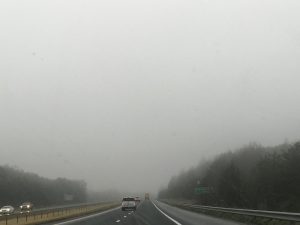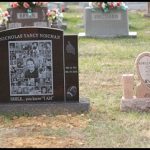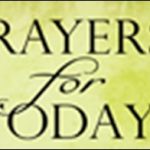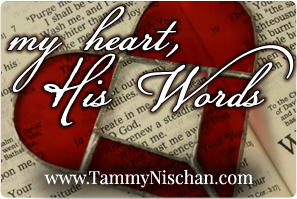
It’s not too difficult to imagine Job,
sitting in ashes,
questioning his life.
“What did I do to deserve this?”
“Where did I go wrong?”
“Why is this happening to me?”
Suffering brings questions.
And sitting with a friend who is full of them
can feel like driving into a very dense fog.
Scary
and
unsettling.
Job’s friends must have been terrified by the questions coming from the mouth of Job,
a righteous man,
their friend,
a man who before this time sat at the city gate full of strength and power.
It’s scary when a strong person seems weak.
So they listened for as long as they could,
But then had to step in.
Set Job straight.
Try to realign his thinking.
Somehow remove the fog.
And help him see what no eye possibly could.
Zophar spoke next.
Filled the air with new words.
Interrupted the sufferer.
Tried to fill in the blanks.
Provide answers on an exam for which none of them had studied.
And I couldn’t help but think….
are we any different today?
When someone is hurting,
isn’t our first response often verbal?
Speaking into fog as if our hot air could somehow blow it away.
Filling in sentences with missing words –
making every attempt possible to remove all empty blanks.
___________________________________
But Job was learning something in his suffering
that his friends had not yet learned.
Fog removal wasn’t what he needed.
Blank-filling wasn’t his ultimate goal.
Questioning the fog and stammering over the empty blanks
was his way of moving through his suffering.
He didn’t need answers as much as he needed to ask questions.
He even tells Zophar,
“Everything you know, I know,
I am not inferior to you.
Yet I prefer to speak to the Almighty
and argue my case before God…..
If only you would shut up and let that be your wisdom.”
Job reached his limit with his friends,
time and time again.
And he wasn’t afraid to let them know.
“Be quiet, and I will speak.
Let whatever comes happen to me.
I will put myself at risk
and take my life in my own hands.
Even if he kills, I will hope in him.”
Job was dismayed,
but he wasn’t about to give up Hope.
Even as he hurled complaint after complaint at the One who made him,
he never forgot this truth.
God had made him.
And God could take him away.
So he continues his unleashing of thoughts,
from a place of deep pain,
unafraid of the outcome.
Because in the end,
he knows God will still be there.
He continues looking up,
and speaking from the deepest part of his soul
to the One who breathed that very soul into him,
unafraid of the consequences.
Another friend jumps in though.
Eliphaz can’t take it.
It’s hard to watch a friend drive into danger.
And not try to stop him.
So Eliphaz speaks,
attempting once again to turn Job around.
Trying again to remove the thick fog
with mere words.
As if earthly wisdom could somehow end suffering.
Or even make it easier to bear.
The truth is there are no words this powerful.
And Job isn’t afraid to speak this truth in reply,
“You are all miserable comforters.
Is there no end to your empty words?
What provokes you that you continue testifying?
If you were in my place I could also talk like you,
I could string words together against you
and shake my head at you.
Instead, I would encourage you with my mouth,
and the consolation from my lips would bring relief.”
One thing he’s learned in his suffering is that words have power.
And walking a mile in someone else’s shoes is the only way to know how that mile really feels.
Even similar roads can’t be compared,
because we’re all wearing different shoes.
So we leave Job today still sitting in the same ashes.
Surrounded by the same friends….
and the same dense fog.
Reading sentences filled with empty blanks.
The only thing that’s changed is the page we’re on.
That’s how some days are going to be.
So what do we do as we close the Bible and step out into the world today?
I think we pause before we speak.
Always,
And do what Job continued to do.
Trust the One who created both the fog and the empty blanks.
Even when we can’t see what’s coming and sentences don’t make sense.
Because sometimes roads are foggy.
And sometimes there are empty blanks.
Some trust in chariots and some in horses,
but we trust in the name of the LORD our God.
Psalm 20:7











 In December of 2007 as our youngest son, Nick, was fighting brain cancer, I began to blog. Writing provided a way for me to release all of my questions, fears, and doubts. It also allowed me to share the ups and downs of Nick's journey with people who were praying for him all over the world. When Nick went Home in November of 2008, my blog became my way of searching for God in the midst of my deep heartache. My heart was broken and grief brought to the surface every emotion imaginable. Being able to release those emotions through my writing brought a sense of purpose to my pain. Having already walked the road of grief in 1992 when we lost our daughter to SIDS, I knew I needed a way to keep from falling into a pit of depression and despair. I had walked close to the edge of a bottomless pit when we lost our daughter,and I knew I couldn't let myself get that close to the edge again. This blog has been and continues to be my tiny corner of the world where I can share My Heart as I journey through God's Word.......thus the name........ My Heart His Words. Thank you for taking time to share life with me. If we do not meet while here on earth, I look forward to hearing all about your life when we reach our final destiny.........Heaven! Email me anytime at
In December of 2007 as our youngest son, Nick, was fighting brain cancer, I began to blog. Writing provided a way for me to release all of my questions, fears, and doubts. It also allowed me to share the ups and downs of Nick's journey with people who were praying for him all over the world. When Nick went Home in November of 2008, my blog became my way of searching for God in the midst of my deep heartache. My heart was broken and grief brought to the surface every emotion imaginable. Being able to release those emotions through my writing brought a sense of purpose to my pain. Having already walked the road of grief in 1992 when we lost our daughter to SIDS, I knew I needed a way to keep from falling into a pit of depression and despair. I had walked close to the edge of a bottomless pit when we lost our daughter,and I knew I couldn't let myself get that close to the edge again. This blog has been and continues to be my tiny corner of the world where I can share My Heart as I journey through God's Word.......thus the name........ My Heart His Words. Thank you for taking time to share life with me. If we do not meet while here on earth, I look forward to hearing all about your life when we reach our final destiny.........Heaven! Email me anytime at 
